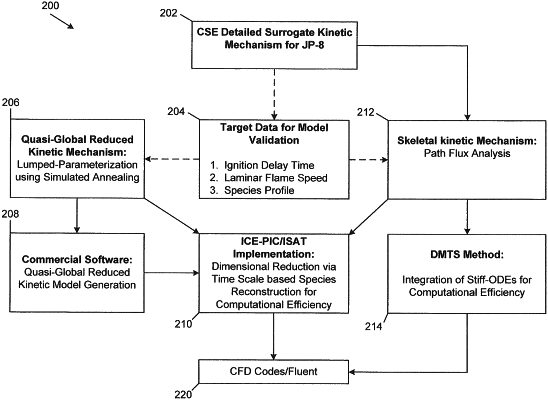| CPC G06F 30/20 (2020.01) [G06F 17/10 (2013.01)] | 14 Claims |

|
1. A method for design and analysis of reacting flows for flameholders used in gas turbine engines by modeling at least one characteristic of fuel combustion or decomposition for a first fuel, said method comprising the steps of:
generating, by a processor, a global reduced kinetics model of the at least one characteristic of fuel combustion or decomposition of the first fuel under a first set of operating conditions, wherein the global reduced kinetic model is expressed as a function of at least three reaction rate parameters, as well as reactant species concentrations of the first fuel raised to a power and the oxidizer raised to a different power; and
optimizing the reaction rate parameters and reactant species' concentration powers of the global reduced kinetics model by a lumped-parameterization method comprising a simulated annealing process for estimating reaction rate parameters and reactant species' concentration powers of the reduced kinetics model based on at least laminar flame speed target data, the simulated annealing process implementing a cooling schedule to constrain a reaction rate parameter search used to estimate the reaction rate parameters of the reduced kinetics model, constraining the reaction rate parameter search between an upper and lower bounds using a factor specified by a user.
|